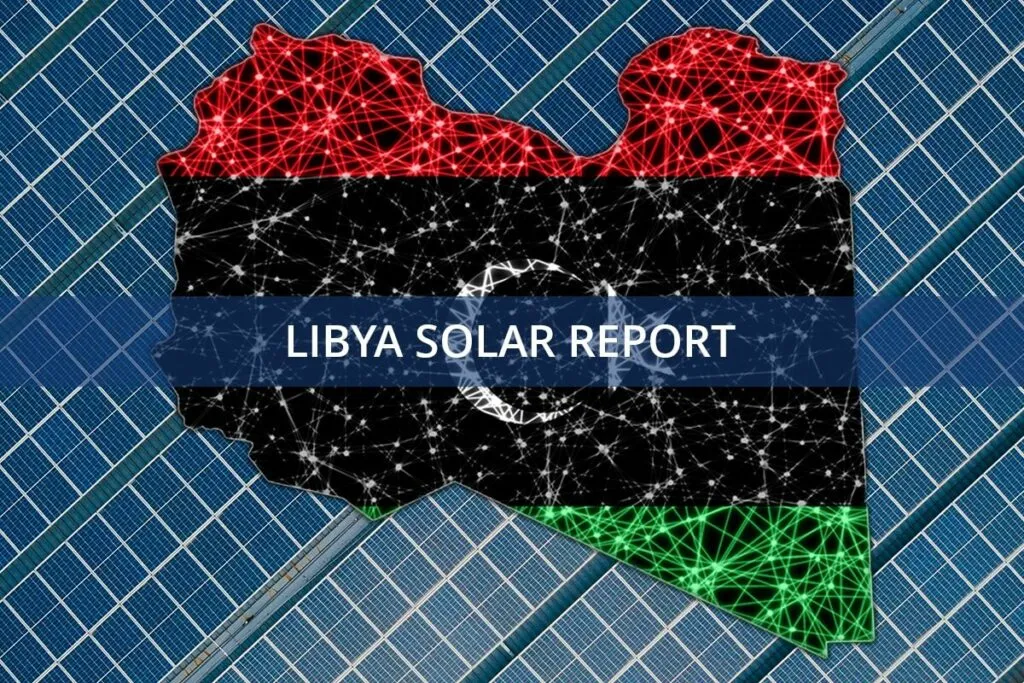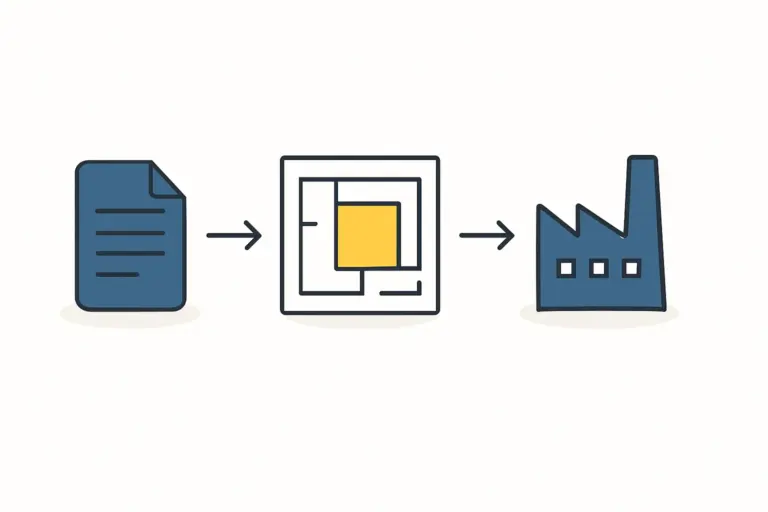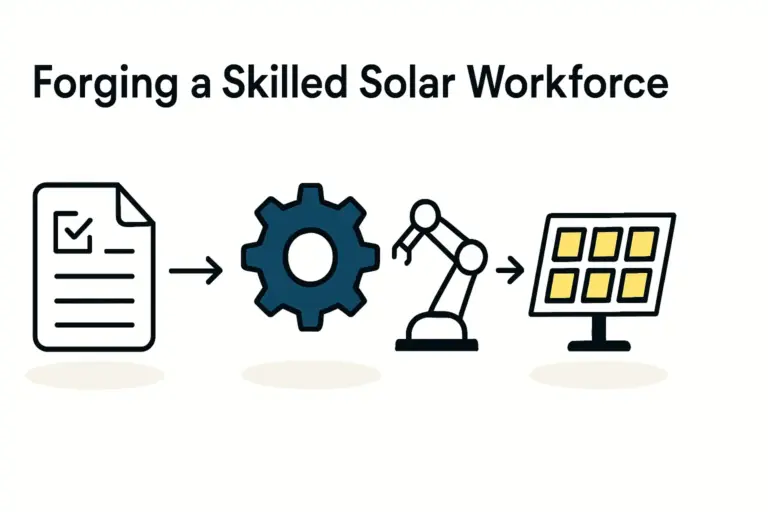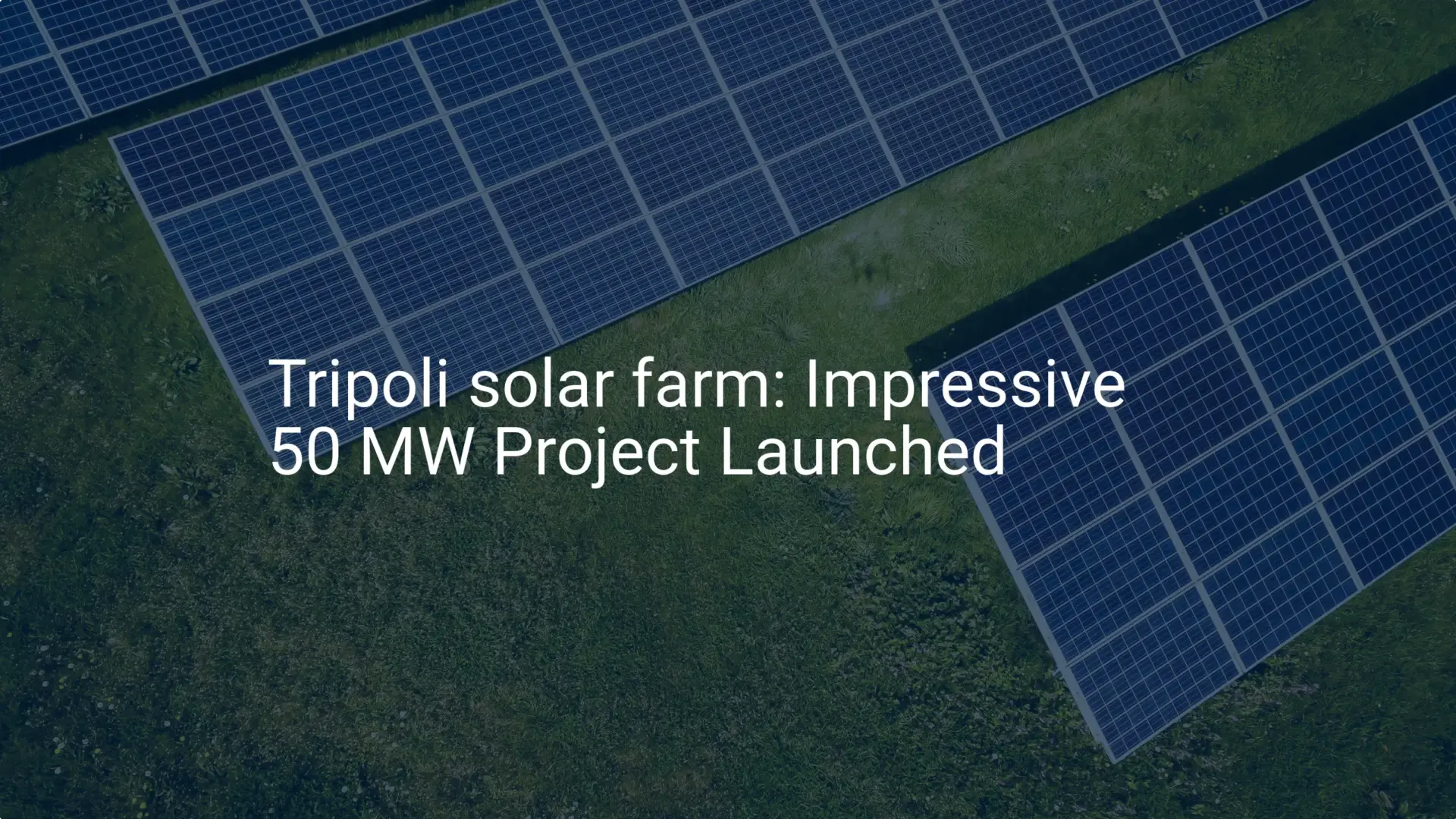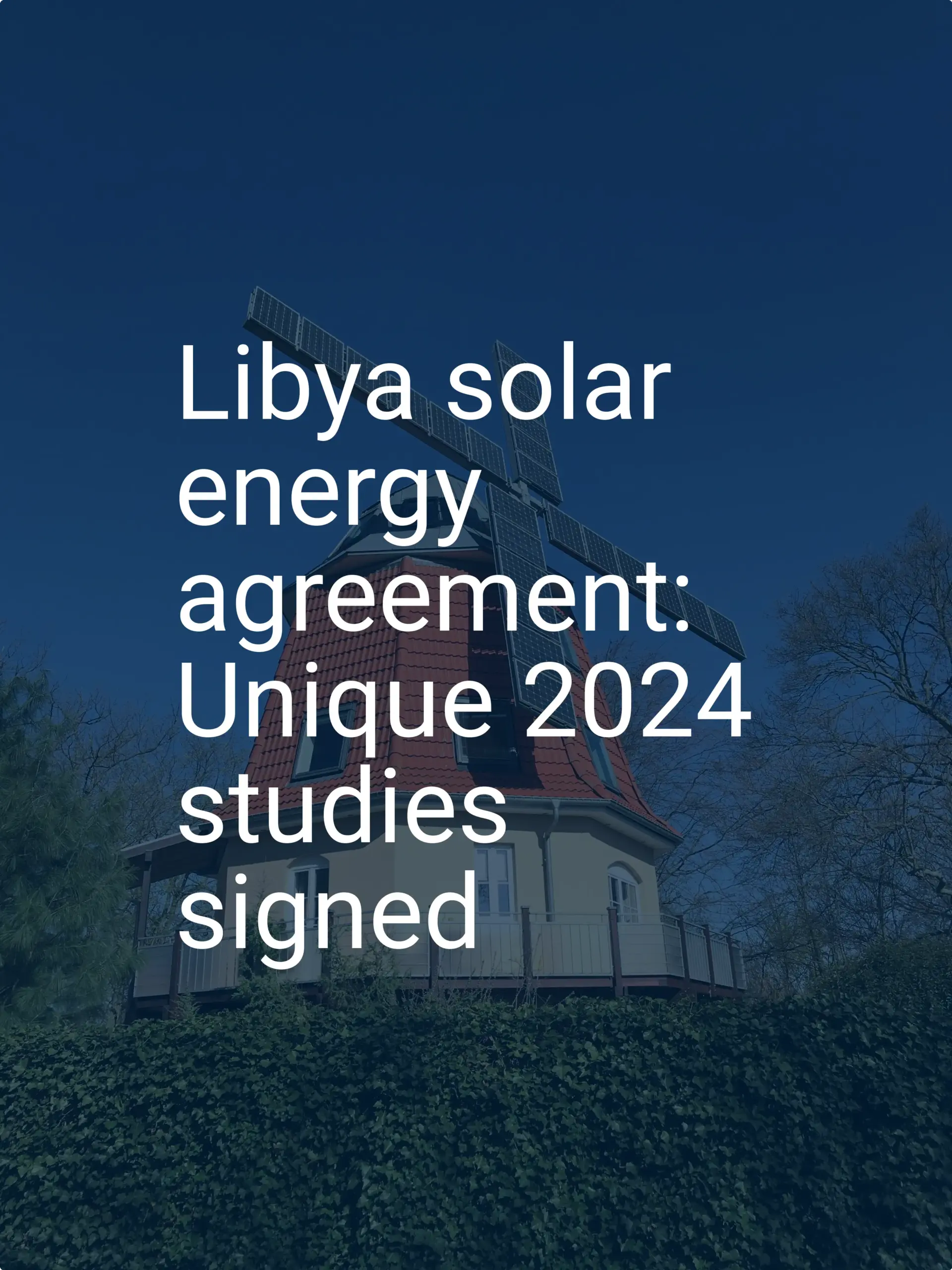Historically defined by its vast oil reserves, Libya is increasingly turning its attention to an even more abundant resource: the sun. This strategic shift toward renewable energy presents a significant opportunity for entrepreneurs and investors looking to enter the solar manufacturing sector. Capitalizing on this opportunity, however, requires a clear understanding of the financial landscape—particularly the government incentives designed to attract investment.
For any serious investor, these incentives are not merely a bonus; they are a critical component of accurate financial modeling and long-term project viability. This guide outlines the key legal frameworks, tax abatements, and financial programs available to those considering a solar panel production facility in Libya.
The Strategic Context: Libya’s Vision for Renewable Energy
The Libyan government’s commitment to diversifying its energy mix is outlined in the Renewable Energy Strategic Plan (2013-2025). The plan sets ambitious targets, aiming for 10% of the nation’s electricity to come from renewable sources by 2025. This national objective is the primary driver behind the favorable investment climate for solar projects.
The focus is not just on energy generation but also on localizing the means of production. By encouraging domestic manufacturing, the government aims to create skilled jobs, reduce reliance on imported technology, and build a sustainable industrial base. This long-term vision underpins the stability and intent of the financial incentives offered.
Investment Law No. 9: The Cornerstone of Foreign Investment
The primary legal framework governing foreign investment in Libya is Investment Law No. 9 of 2010. This law was designed to create an attractive and secure environment for foreign capital by providing a range of substantial financial benefits. For any entrepreneur planning to establish a solar manufacturing facility, understanding this legislation is essential.
Its provisions directly address the major financial hurdles of a new industrial venture, from initial setup costs to long-term profitability.
Key Tax Abatements and Exemptions
One of the most significant advantages under Law No. 9 is a multi-year holiday from several major taxes. This helps a new enterprise achieve profitability and reinvest capital during its critical early years.
Key tax exemptions include:
- Corporate Income Tax: A five-year exemption from income tax on the profits generated by the manufacturing facility.
- Profit Distribution Tax: A waiver on the tax on profit distributions for the same five-year period.
- Stamp Duty: An exemption from stamp duty fees for all documents, contracts, and legal instruments required to establish the project.
Customs and Import Duty Relief
A solar factory’s initial capital expenditure is heavily weighted towards specialized equipment. Investment Law No. 9 offers a crucial benefit by exempting all necessary machinery, tools, and equipment from customs duties and import taxes.
This provision significantly lowers the barrier to entry by reducing the upfront investment required for essential solar panel manufacturing machinery. The exemption can also extend to raw materials and components needed for production, offering a sustained operational cost advantage.

Financial Freedoms for Investors
Beyond tax and customs relief, the law provides essential financial assurances to build investor confidence. Foreign investors are granted the right to:
- Open Foreign Currency Accounts: Manage project finances in foreign currency at a Libyan bank.
- Repatriate Profits: Transfer net profits and dividends generated by the project abroad.
- Repatriate Capital: Transfer the invested capital out of the country upon the project’s liquidation or sale.
These provisions ensure that capital is not trapped within the country—a critical consideration for any international investor.
Navigating the Administrative Landscape
To benefit from these incentives, investors must navigate the proper administrative channels. The two primary government bodies are:
- Privatization and Investment Board (PIB): The PIB is the central authority responsible for implementing Investment Law No. 9. Investors must submit their project proposals to the PIB for approval to become eligible for legal protections and incentives.
- Renewable Energy Authority of Libya (REAOL): REAOL is the specialized agency that oversees the development of the renewable energy sector. While the PIB handles investment approval, REAOL provides technical and strategic industry guidance, making it a key stakeholder.
Additionally, investors may consider establishing operations within a designated Free Zone, such as the Misrata Free Zone (MFZ). These zones often offer their own distinct set of incentives, which can complement or enhance the benefits provided under national law.
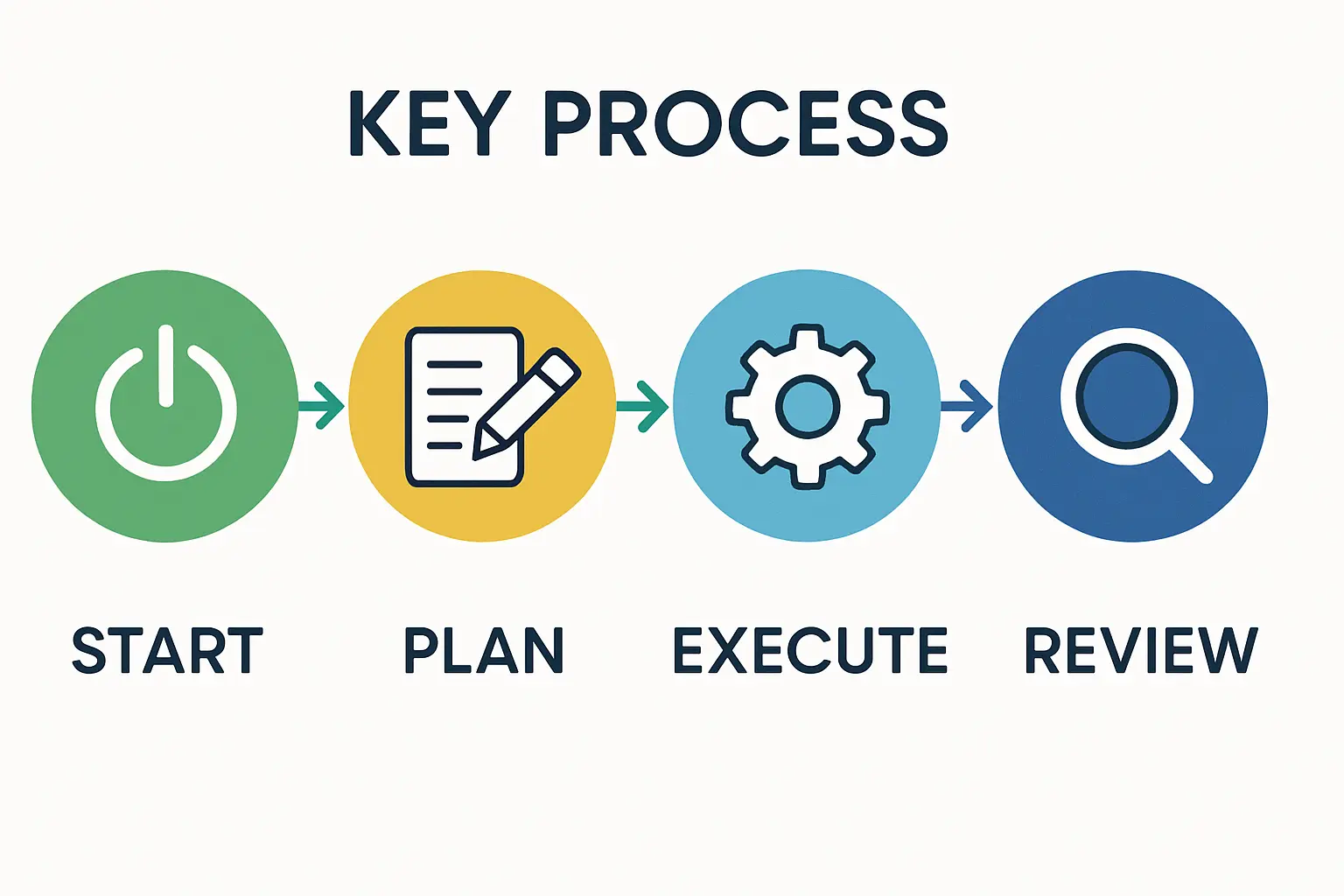
How These Incentives Impact a Business Plan
Understanding these programs is fundamental to developing a realistic and compelling business plan. The benefits translate directly into measurable financial advantages:
- Reduced Initial Capital Outlay: Customs exemptions on machinery and equipment can lower a project’s startup costs by a significant margin.
- Accelerated Path to Profitability: A five-year corporate tax holiday means all profits can be reinvested into growth or returned to investors, drastically shortening the time needed for the project to become financially self-sustaining.
- Improved Long-Term ROI: Lower operational costs from raw material import exemptions and zero tax on distributed profits for five years lead to a substantially higher return on investment over the project’s lifetime.
Experience with turnkey projects facilitated by J.v.G. Technology GmbH shows that integrating these government incentives into financial planning is critical to a project’s success.
Frequently Asked Questions (FAQ)
What is the main law governing foreign investment incentives in Libya?
The primary legal framework is Investment Law No. 9 of 2010, which provides a wide range of protections and financial benefits to foreign investors.
Are there specific tax benefits for starting a solar factory?
Yes. Under Law No. 9, approved projects are granted a five-year exemption from corporate income tax and taxes on profit distribution.
Can I import manufacturing machinery without paying customs duties?
Yes, the law provides a complete exemption from customs duties and import taxes on all machinery, equipment, and spare parts required for the project.
Is it possible to take profits out of the country?
Yes, the law explicitly guarantees foreign investors the right to repatriate their net profits and invested capital.
Which government body approves investment projects?
The Privatization and Investment Board (PIB) is the authority responsible for reviewing and approving projects under Investment Law No. 9.

Next Steps in Your Investment Journey
Libya has established a robust and attractive legal framework to encourage investment in its burgeoning solar manufacturing sector. The combination of significant tax holidays, customs exemptions, and financial guarantees presents a compelling case for entrepreneurs looking to establish a presence in the region.
While understanding these incentives is the first step, the next step is to integrate this knowledge into a comprehensive operational and financial plan. For those ready to explore the practical aspects of implementation, a detailed overview of how to start a solar factory offers a structured roadmap for turning this opportunity into a reality.

